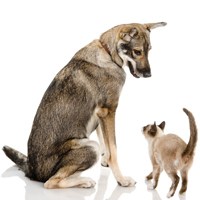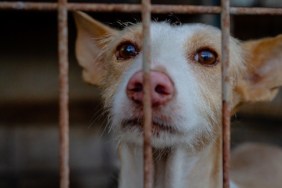Last week, Phoenix’s city council voted to ban sale of puppy and kitten mill animals through pet stores in the city limits. The council’s ruling, (5 in favor, 3 opposed) unites them with a dozen other cities around the country trying to get a handle on pet overpopulation while supporting humanely sourced pet adoption.
The decision comes to the relief of animal welfare advocates who wanted to send a clear public message to pet stores that offered puppies and kittens for sale were primarily sourcing those animals from inhumane and overcrowded factory farm-style conditions. Maricopa County’s animal sheltering system is currently euthanizing 40 percent of the animals entering their doors. With numbers like that, reducing the volume of unspayed and unneutered homeless animals coming into the area seems like it will only help more animals leave the shelters alive.
Some citizens object saying the new law is unnecessary, will have little effect on the county’s strays, and will only harm responsible breeders. But the argument can hardly hold water. People looking for a particular breed of dog can still go to a purebred rescue or a small breeder who chooses to place their animals directly. A responsible breeder who cares about the placement of their dogs would never choose to use a high-volume broker to place their dogs without any screening or education, so their businesses (or hobby, depending on volume) would not suffer under a ruling like this. On a grander scale, Phoenix’s reduced demand for inhumanely raised puppies and kittens could have long-term impact on mills whose business depends on uninformed purchasers.
Further trying to muddy the waters on an otherwise clear ethical decision, opponents claim the ruling is meddlesome and government shouldn’t tell people how they can and cannot obtain a pet. But government has been involved in consumers’ decisions for as long as government has been in existence, and in many cases, for the welfare of animals, the decisions have been made to protect those who cannot protect themselves. In the U.S., rules exist to protect dolphins from being unnecessarily harmed in fishing nets, to limit the amount of time livestock is contained in travel crates, and to stop wild parrots from being caught and sold as pets. Why would we not include some of our country’s most cherished animals — cats and dogs — in these laws of compassion?
Phoenix has taken a step in the right direction. With the city shelters alone (not including private rescues and non-profit privately managed animal shelters in Phoenix) receiving more than 40,000 animals a year, a move like this can only help save more lives. And if it helps a few more people understand that puppy and kitten mills are not a humane source for pets, then it is a win for cats and dogs everywhere.









